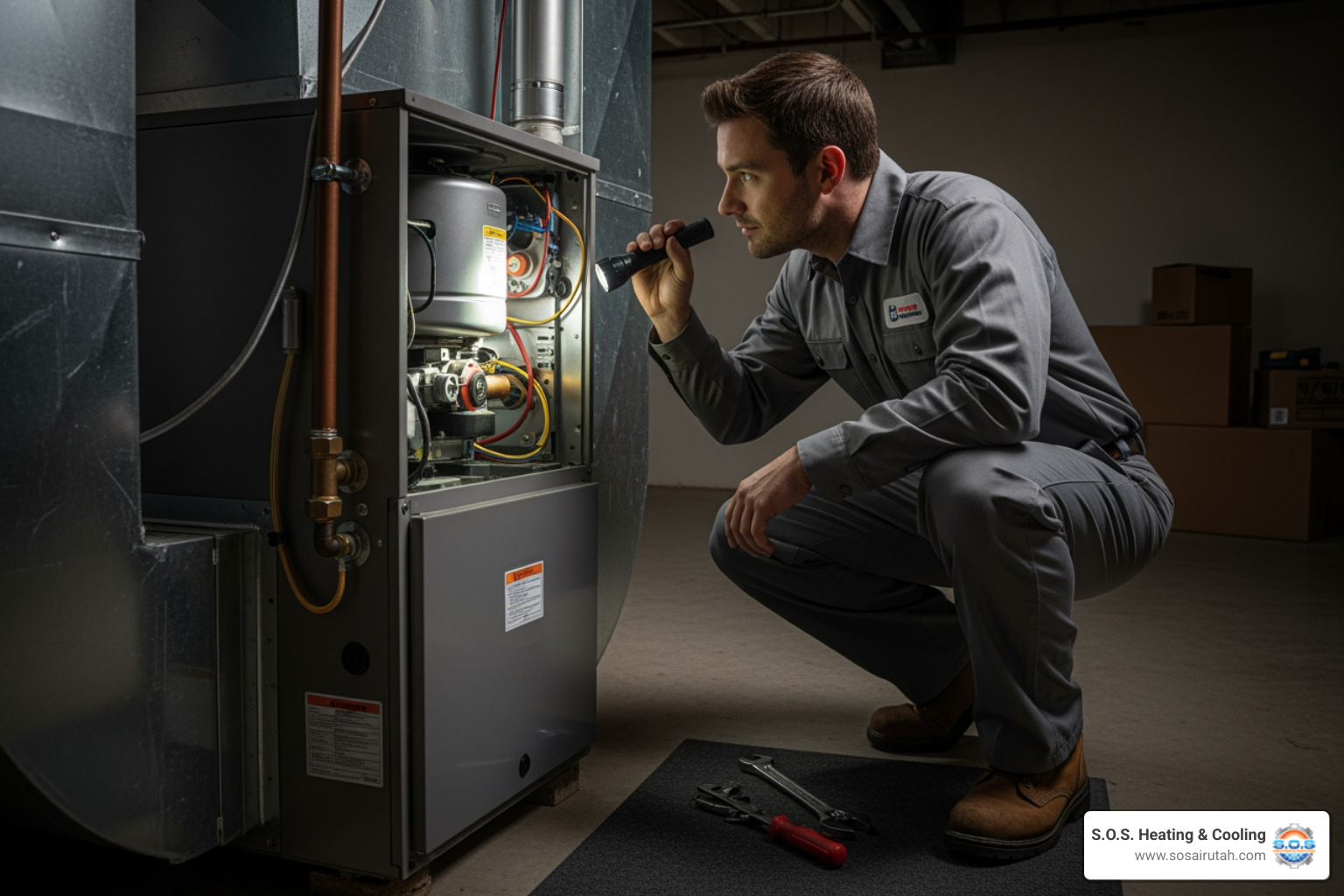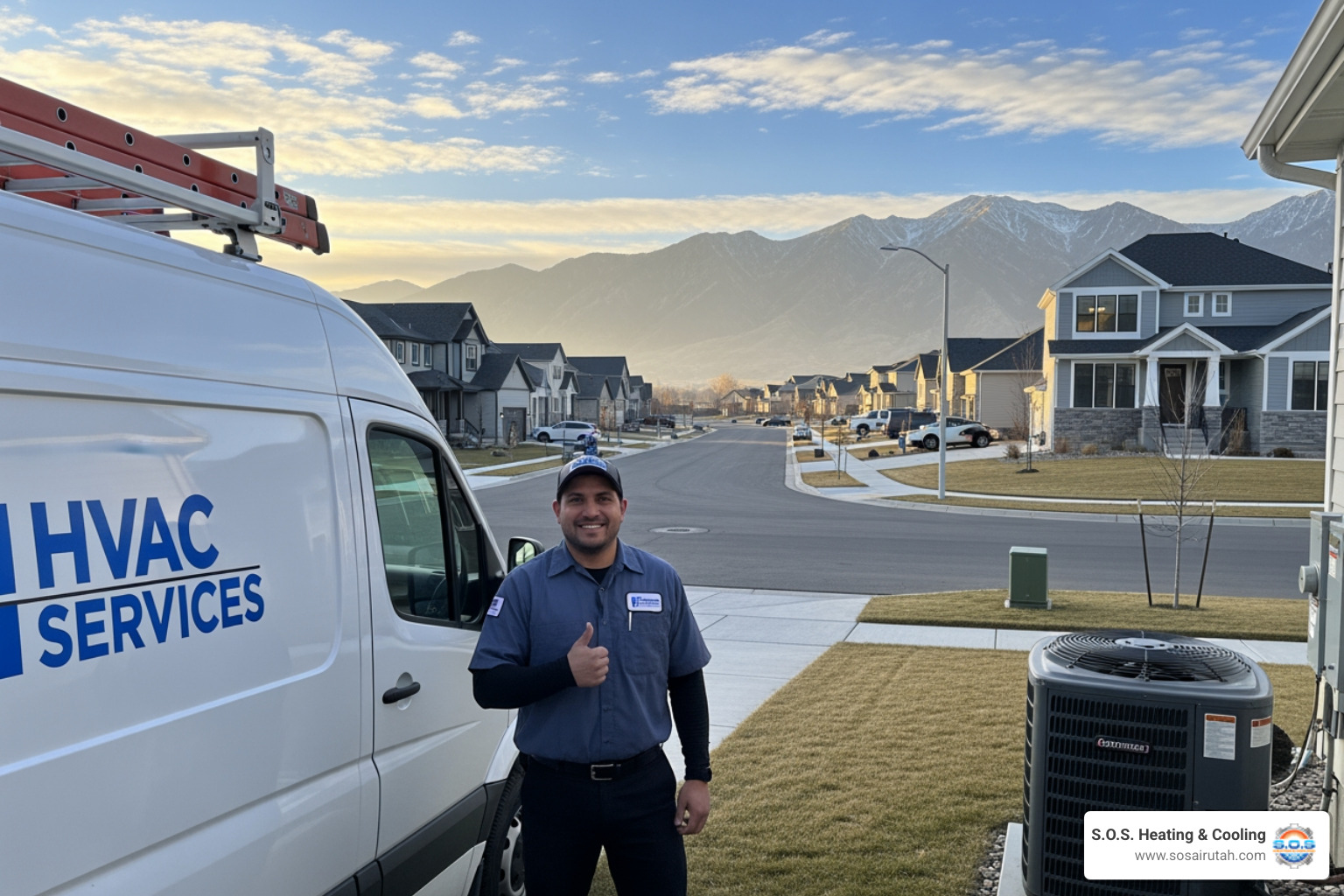
Buzzing sounds coming from an AC unit aren't just annoying — they're usually a sign that something's not right. For homeowners in Kaysville, these noises often signal a mechanical or electrical issue that needs attention. While some might brush it off as a minor nuisance, ignoring a consistent buzzing sound can lead to damage that is far more serious and much more expensive to fix. Summer months put a lot of pressure on cooling systems, and a noisy unit is a warning that it might not keep up when it’s needed most.
Understanding what causes these sounds is the first step to fixing the issue before it worsens. Noise problems in an AC system can point to anything from a loose panel to a failing compressor. Knowing what to look for can give homeowners more control and help direct the conversation when contacting a technician. The goal isn’t just to quiet down the unit — it’s to make sure it’s running safely and efficiently for the long haul.
Common Causes of AC Buzzing Sounds
Buzzing is one of the more common noises people mention when something doesn’t sound right with their AC. The sound can vary from a faint vibration to a louder, more aggressive hum. While the causes can vary, many stem from mechanical or electrical issues that worsen with time. Here are some of the most common reasons why an AC might start buzzing in a Kaysville home:
1. Loose Parts or Components: Over time, screws, bolts, or housing panels inside or outside the AC unit can loosen. When airflow kicks in or the motor starts running, these parts vibrate against each other and produce a buzzing sound. This kind of issue might start small but can lead to more serious wear if left without adjustment.
2. Electrical Issues: A buzzing noise can also point to a problem within the electrical system, particularly around relays, contactors, or circuit boards. These parts help control the flow of electricity and regulate the AC’s operation. If anything inside the electrical panel starts to fail or short out, buzzing is often one of the first warning signs. It’s best not to investigate these components alone, as electrical repairs require proper tools and training.
3. Malfunctioning Compressor: The compressor is one of the hardest-working components in the AC system. If it begins to wear down or is forced to work under poor conditions, it may produce a loud buzzing. In some cases, this comes from internal electrical issues or from the unit being overcharged with refrigerant. Either way, the compressor should not be ignored. This part tends to be expensive to replace and is worth preserving through early intervention.
4. Refrigerant Leaks: While refrigerant itself doesn’t buzz, a buzzing sound can be heard if the system pressure is too high or if a leak is causing abnormal fluctuations. It’s possible for the unit to make unnatural noises when refrigerant levels are no longer stable. You might also notice reduced cooling power inside the house around the same time.
5. Debris in the Outdoor Unit: AC systems installed outdoors are exposed to all kinds of debris — twigs, leaves, dirt, and even small animals. If something obstructs the fan or gets caught inside, you’ll likely hear a rattling or buzzing sound. This can cause the fan blades to slow down or get knocked off balance, affecting both the noise level and the cooling performance.
Often, the buzzing is a symptom of early wear. Early signs might start subtly and gradually become louder as parts get looser or more strained. It’s not always easy to pinpoint which issue is to blame just by the sound alone. For example, someone in Kaysville recently noticed their AC started buzzing every time it turned on. They thought it was a twig stuck in the fan, but the real issue ended up being a failing contactor in the electrical panel — a much bigger problem that could’ve damaged more parts without service.
Understanding these causes is the first step. Next, it's important to know what can be safely checked and when it's time to call for professional help.
Diagnosing the Problem
Once a buzzing sound starts, identifying the cause sooner rather than later can help avoid expensive damage. Homeowners in Kaysville can do a few basic observations, but most of the inspection and repair work should be handled by our professionals to ensure safety and accuracy.
Here are a few early steps that can help point the technician in the right direction:
1. Look for loose panels or screws on the exterior unit. If anything appears misaligned or rattling when the AC is running, that movement might be behind the buzzing.
2. Pay attention to when the buzzing happens. If it only starts when the AC kicks on, it may be a contactor or capacitor issue. Constant buzzing, even when the AC is off, could indicate something electrical is stuck or shorting.
3. Check the area around the outdoor unit. Blades should spin freely and not touch any obstruction. If the fan seems unbalanced or blocked, mention it during the service call.
4. If cooling performance has dropped at the same time as the noise began, this could be a sign of a refrigerant problem or compressor strain.
5. Avoid opening the access panel or poking around electrical parts. These types of issues — including buzzing from transformers, relays, or internal wiring — can put you at risk of serious injury.
Some problems show up in more than one area. A weak capacitor, for example, can cause both a buzzing sound and slow startup times. Our technicians have tested tools to measure voltage, pressure, and electrical flow so they can find the core issue quickly and safely.
Why Immediate Repair Is Necessary
When an AC unit in Kaysville is making a buzzing noise, it’s tempting to wait and see if it clears up. But in most situations, noise is just an early alert that something is about to fail. Continuing to run the system in that condition can cause more strain or even make the original repair more expensive.
Allowing buzzing to continue can lead to:
- Damaged fan blades or motors if the movement isn’t corrected
- Compressor overheating or failure if pressure isn’t regulated
- Shorted electrical connections which can lead to power loss or circuit damage
- Loose components stretching or snapping over time due to vibration
If the source of the buzzing is electrical, overheating or burned-out connections can reduce the unit’s ability to cool the home during hot Kaysville summers. This means the unit runs longer, works harder, and uses more energy just to maintain a normal temperature inside the home.
Even if cooling performance isn’t affected right away, declining parts lower the system’s efficiency. Over time, that leads to higher energy bills and unexpected repair visits. Buzzing sounds are a built-in warning. Acting on them early keeps your home safer and your system running stronger.
Professional Repair Solutions in Kaysville
Noise issues with AC units can happen any time during the cooling season. The good news is that our technicians are trained to trace these problems fast and correct them with accurate repairs. For homeowners in Kaysville, having a professional diagnosis is the best way to stop the issue before it spreads to other parts of the AC system.
An in-depth repair may include:
- Electrical testing and replacement of damaged relays, capacitors, or contactors
- Compressor performance check and refrigerant level correction
- Realignment or replacement of fan motors and blades
- Removal of debris and inspection of outdoor unit housing
- Tightening of loose brackets or support screws that cause vibration
Our professionals bring the right tools for each job and are familiar with the issues that are most common in homes throughout Kaysville. Whether the repair needs to happen on a weekday or during a weekend heatwave, they make sure the fix is complete, safe, and built to last.
Keeping Your AC Quiet and Running Smooth
After a buzzing issue is resolved, the goal is to prevent future problems and extend the life of the system. Homeowners who stay ahead of maintenance cut down on the likelihood of these noisy problems returning.
To keep your AC system running quietly in Kaysville, follow these tips:
- Have seasonal inspections done before peak summer temperatures hit
- Keep the outdoor unit free of leaves, dirt, and other blockages
- Replace air filters on a consistent schedule to reduce strain on components
- Let technicians check refrigerant pressure and electrical parts at least once a year
- Don’t ignore changes in sound, airflow, or temperature consistency
Air conditioning systems are built to last, but like any machine, they need maintenance to do their job well. When buzzing or unusual noises come up, it's always better to follow up than ignore them.
Homeowners in Kaysville rely on their AC systems to get them through long stretches of heat. A buzzing sound may start out lightly, but if left alone, it often becomes a bigger problem. By catching those signs early and acting fast, you can protect your comfort and avoid major repairs down the road.
Professional attention, regular upkeep, and knowing what warning signs to watch for help keep your unit running as it should. Don't wait for complete failure. Even if your cooling still works, strange noises mean something under the surface isn’t right. Taking the next step now keeps your system stronger for longer.
For dependable performance and lasting comfort, S.O.S. Heating & Cooling understands the importance of addressing unusual AC sounds before they develop into costly repairs. If you need professional AC repair in Kaysville to keep your system operating safely and efficiently, our team is ready to help. For a quick estimate or to schedule service, please contact us today.
Explore Our Latest Insights and Updates in Plumbing Services

Finding Your Perfect Match: Expert Heating Tune-Ups in SLC

Keep Your Home Cozy: A Comprehensive Look at Heating Tune-Ups in Bountiful

South Jordan's Lifeline: Emergency & 24-Hour Heating Tune-Up Services






.avif)